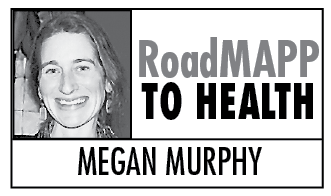Editor’s Note: MAPP, or Mobilizing for Action through Planning and Partnerships, is a local process that aims to use and build upon our strengths to improve our individual, family and community health. Health is defined broadly to include cultural, economic, environmental, mental, physical, and spiritual health.
MAPP is a roadmap or process for aligning our local community efforts around health improvement goals. Our community has chosen increasing family well-being as the focus for the next few years. In order to align our efforts, we need a common understanding and definition of family well-being.
In Alaska, it is common for individuals to be geographically disconnected from the traditional definition of family — those related by blood, marriage or adoption. For Alaskans, family can include close friends and neighbors that are an integral part of our existence. The definition of family is not exclusive to adults with children. We each get to define family for ourselves which means there are many variations on what this can look like.
Well-being is defined as having a positive social, economic, cultural, educational, psychological, spiritual and/or physical state. For most of us, well-being is not something that is attained and then forever maintained, but a goal to work toward.
How can our community support family well-being?
To answer this question, MAPP reviewed research and inquired with local, state and national experts. The resounding response was that well-being has a great deal to do with our resilience and the ability to cope with stress and thrive despite challenges in life. Resilience comes from having protective factors in our lives that buffer us from these challenges.
Examples of those factors that support an individual’s resilience include having a sense of humor, having the ability to form relationships with peers, having a strong cultural identity, and having opportunities to express feelings through words or music. More protective factors mean greater resilience. If we can increase our resilience, we increase our likelihood of being well.
Many things increase family well-being: having a positive family environment with caregivers that get along, a close relationship with a caring and supportive adult, family members that are physically and mentally well, a stable living environment with adequate income and housing, and having support outside of the home.
In order to align and guide our existing health improvement efforts, MAPP is using the above family protective factors to promote family resilience and well-being. In collaboration with multiple state and local organizations, MAPP hosted a Collective Impact workshop Sept. 29. More than 80 participants from Homer and around the state discussed how their existing efforts align with these protective factors and strategized what near-term steps could be taken to collectively increase family resilience and well-being within our community.
This discussion is not limited to this workshop, but is open to anyone who is interested. The conversation can start at your own dinner table. We invite you to consider what it is you do, what it is you are passionate about, and how these things might relate or contribute to the family resilience factors mentioned above.
Do you have opportunities to be a role model to a peer or someone younger than you? Can you contribute to the feeling of safety in your neighborhood? Do you take time to take care of yourself — be it through music, meditation, spending time with good friends or going for a walk? If we recognize the things we already do to support our own well-being, it will help us see how these connect to and support the well-being of others.
We all have a choice to participate in our community. What part do you want to play?
As H. E. Luccock, a Methodist minister and Yale professor, put it: “No one can whistle a symphony. It takes an orchestra to play it.”
Megan Murphy is the MAPP coordinator and can be reached at 235-0570 or mappofskp@gmail.com


